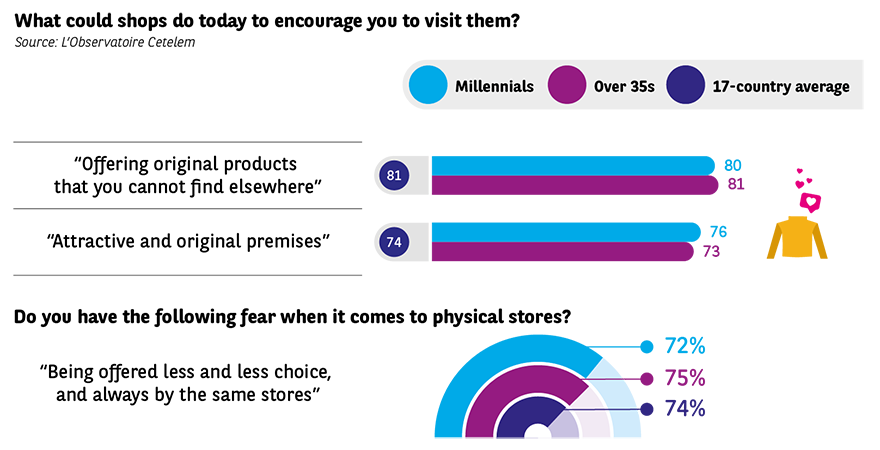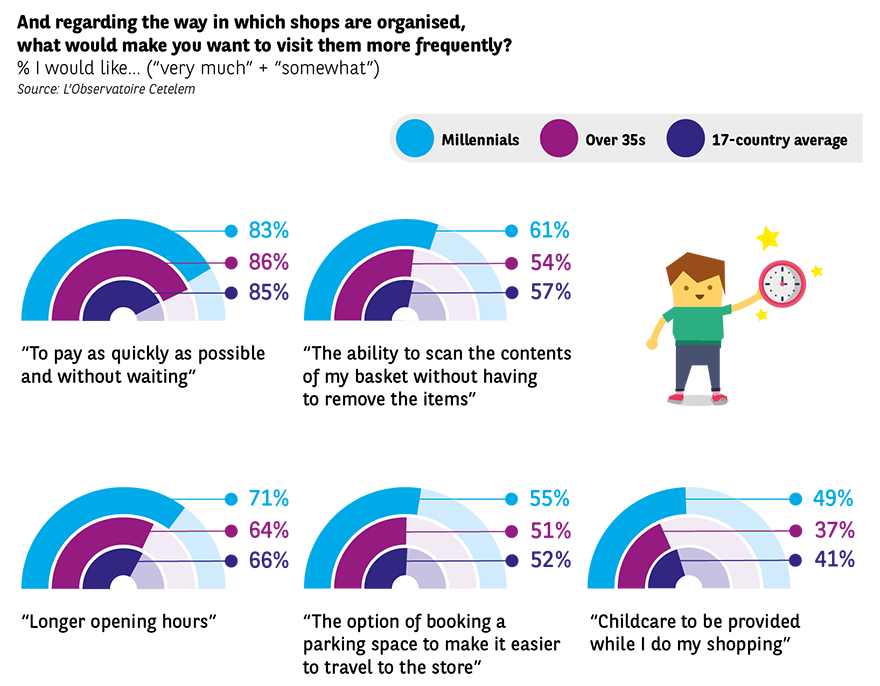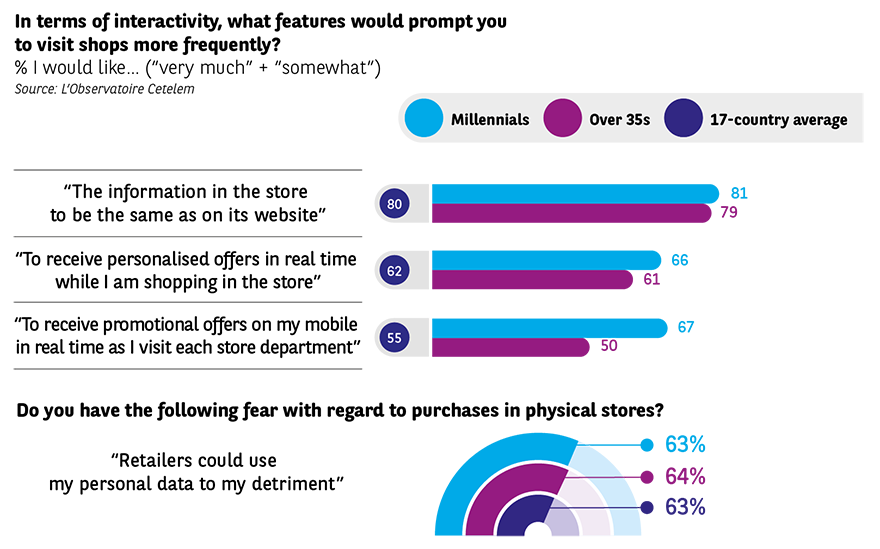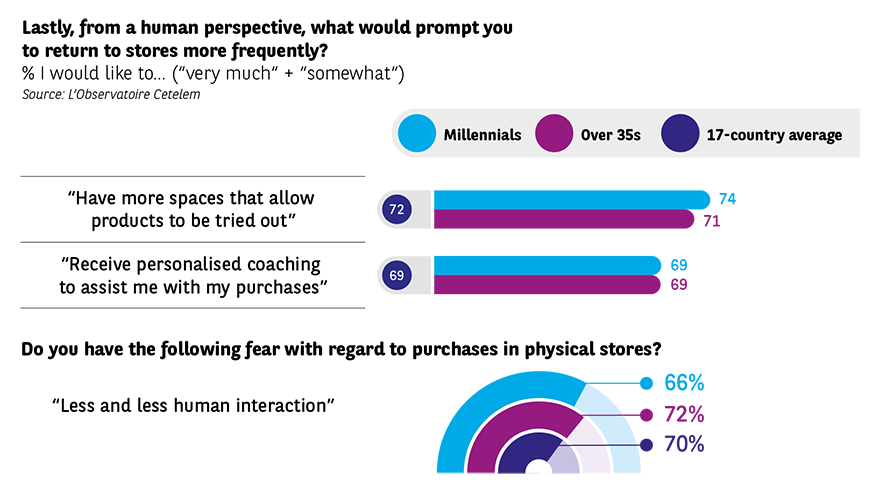Improvements are expected


Uniqueness
Above all, shops must promote their singularity, proclaim their differences and do what they can to be unique and stand apart from their competitors. 80% of Millennials expect shops to offer products that cannot be found elsewhere. This desire bears relation to another finding that is just as significant. 72% of Millennials fear that they will have less and less choice, with the same retailers always offering them the same products. The Portuguese are the most excited about the prospect of finding the unfindable (90%) while the Danes are a little more reserved (70%).
Visual appeal sells
Millennials also want their shops to be attractive and original (76%). They are worried that standardisation will dampen their desire to shop. Aesthetic factors are particularly important to the Romanians and Spanish.
Winning services
As we have seen, speed and ease of use are two of the key expectations of Millennials. In both of these areas, they believe shops have to improve. 83% of Millennials want to be able to pay as quickly as possible, with no waiting at the tills. On this point, the results from every country surveyed are aligned. They would also like longer opening hours. The Millennial generation also stands apart because the working world is much more open to the female gender than ever before. In addition, individuals increasingly work in a context that differs from the traditional employer-employee relationship, with the lines between work life and private life becoming ever more blurred. Thus, 71% of Millennials would like longer opening times. This is particularly the case in Bulgaria and Romania (82%). Conversely, in Germany, where women gained access to the employment market later than in other countries, people are a little less enthusiastic about this facility (60 %).
A number of additional improvements are suggested to make shopping quicker and easier. Basket scanning for simpler payment (61%), parking space booking (55%) and childcare (49 %) are some of the services people would like to be offered to make shopping more convenient.
Personalised digital services
None of this detracts from the digital tropism of Millennials. While 63% are concerned about how their personal data is used via the web (the same figure as the overall average for all generations of Europeans), they are hungry for highly personalised digital services that would give them added motivation to visit stores. 66% would like to receive mobile alerts about promotional offers from the store departments that interest them, as well as personalised suggestions sent to them in real time while they shop. Most strikingly, and this is a sign that they see shops and the web as indissociable, 81% would like physical stores to display the same information as they provide on their websites.
A fun and friendly place to go
Digitalisation does not necessarily mean dehumanisation. 66% of Millennials are worried that human interaction could gradually disappear, with the French being among the most concerned in Europe in this regard (73%). Millennials would also like to see more spaces that allow them to try out products (74%) and to receive personalised coaching as they shop (69%). They want stores to trigger more emotions.
They are looking for retailers to surprise them with fun and sensory experiences (61%), to provide areas in which to relax (52%) and enjoy leisure activities that suit the theme of the store (53%). The Romanians and Poles are the most enthusiastic about this new type of store, with the Germans, Austrians and Danes showing the least interest.




